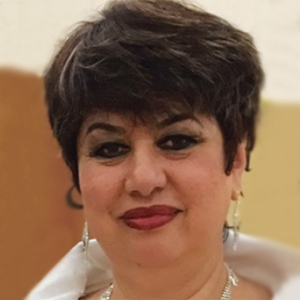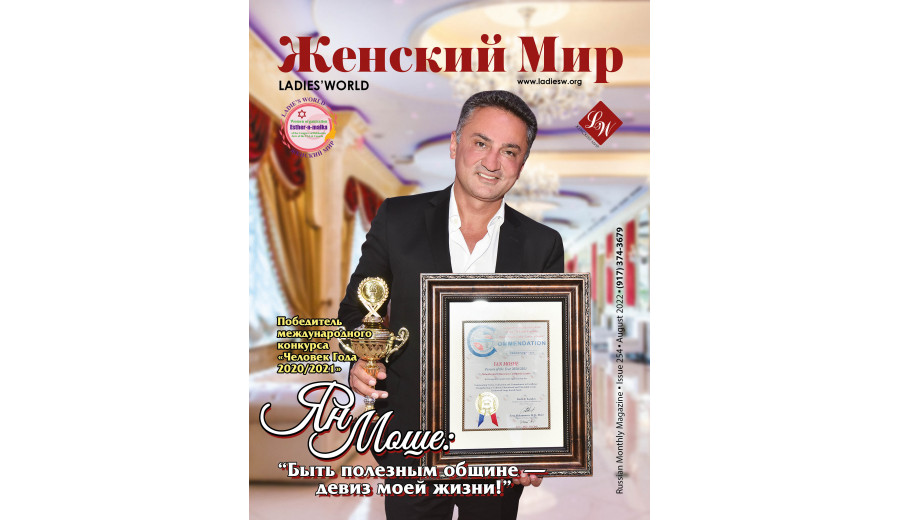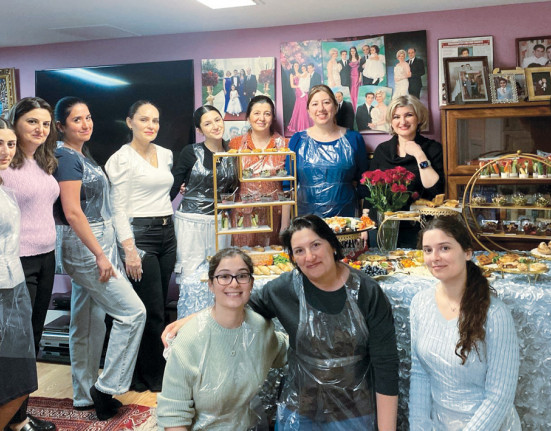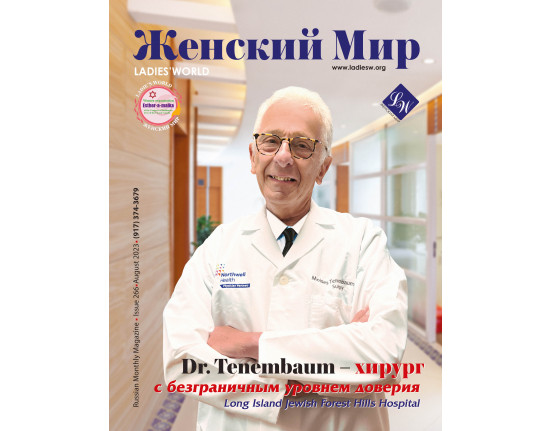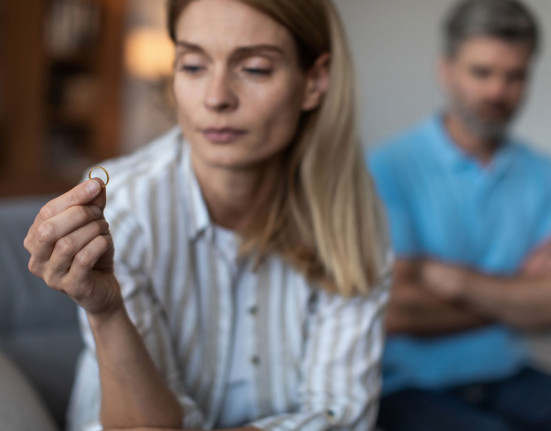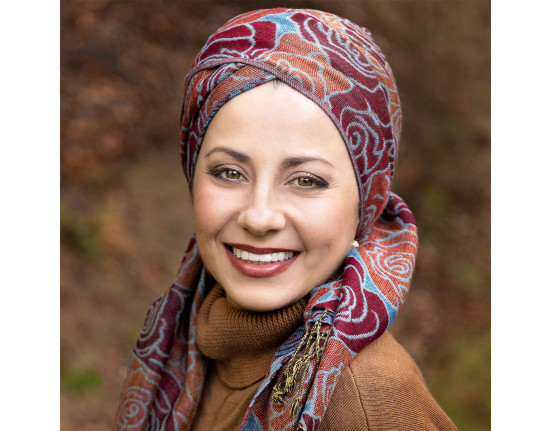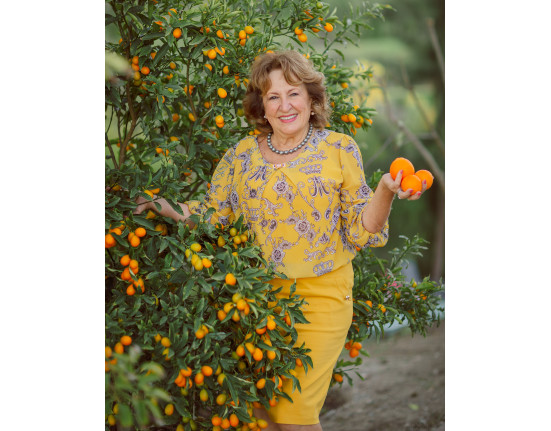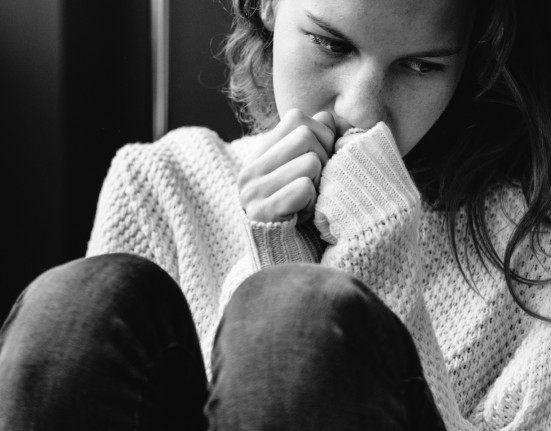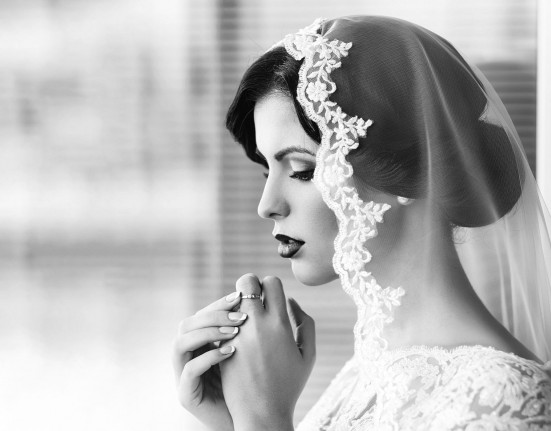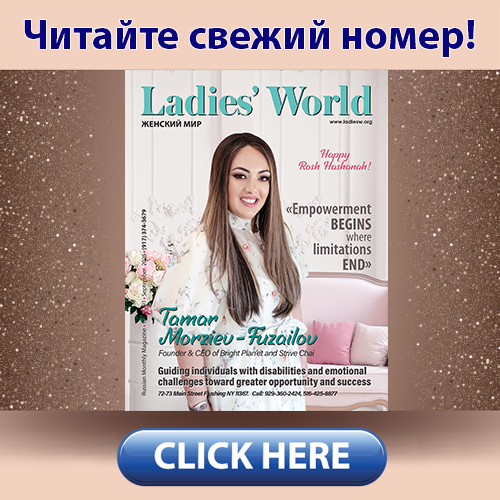The name of the young
businessman Yan Moshe, is well known. He is only 44 years old, but he is
already the father of 4 children; The owner of Hudson Regional Hospital in New
Jersey in addition to several medical offices and clinics and; The developer of
a wonderful condominium complex named Millennium 99 located in the center of
Rego Park.
Millennium 99 houses:
The Center for Longevity for the Elderly as well as a psychological health
center for individuals struggling with substance abuse; The restaurant, where
pensioners eat and spend their leisurely days. The restaurant also celebrates
joyful occasions such as anniversaries, birthdays, weddings (chupas), girls and
boys (bar/bat mitzvah), memorials, and many religious holidays are held there
as well.
The synagogue, where
they come daily to pray, celebrate happy occasions, holidays and also funeral/wake
services where people can pay their last respects.
Even more recently,
thanks to Yan, just a few steps from the Center of Longevity, the Museum of
Bukhara-Jewish Heritage was opened on the premises of the former supermarket
Pioneer. Not many people know that this building was considered a non-Jewish
religious center according to the original plan of the city, and this event
would have a dramatic impact on the life and demographics of the district,
where the majority of the area is inhabited by Russian-speakers and a community
of Bukhara Jews.
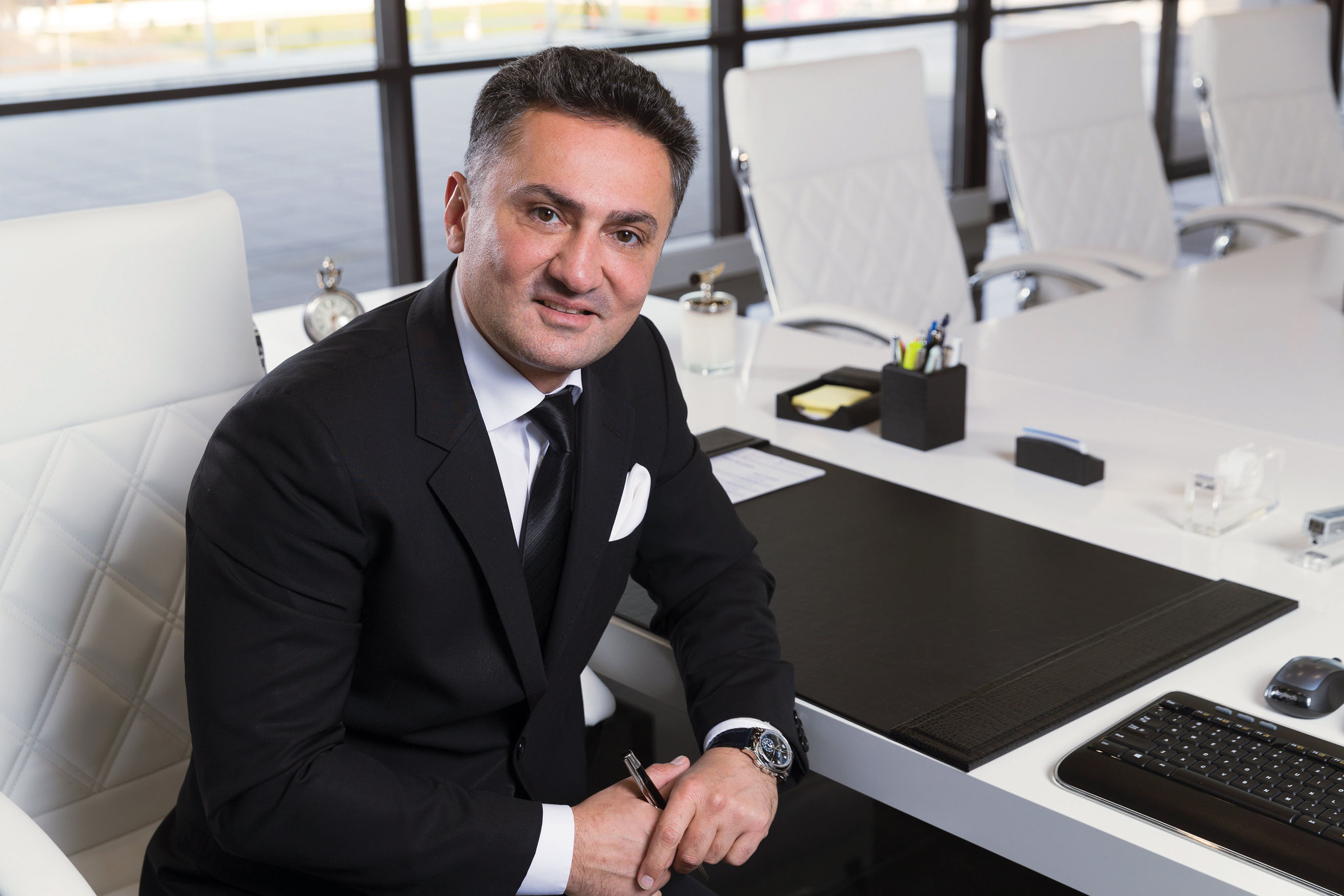 Recently, on June 1,
2022, under the auspices of the Congress of Bukhara Jews of the USA and Canada,
the women’s organization Ester-A-Malka and the magazine Women’s World awarded Yan
Moshe the honored title of Man of the Year 2020/2021 in several nominations:
philanthropist, philanthropist and social leader.
Recently, on June 1,
2022, under the auspices of the Congress of Bukhara Jews of the USA and Canada,
the women’s organization Ester-A-Malka and the magazine Women’s World awarded Yan
Moshe the honored title of Man of the Year 2020/2021 in several nominations:
philanthropist, philanthropist and social leader.
It gave me great
pleasure to get to know Yan, to talk to him and to learn more about the
breakthroughs in his professional, personal and public life, which I am happy
to share with readers of our magazine.
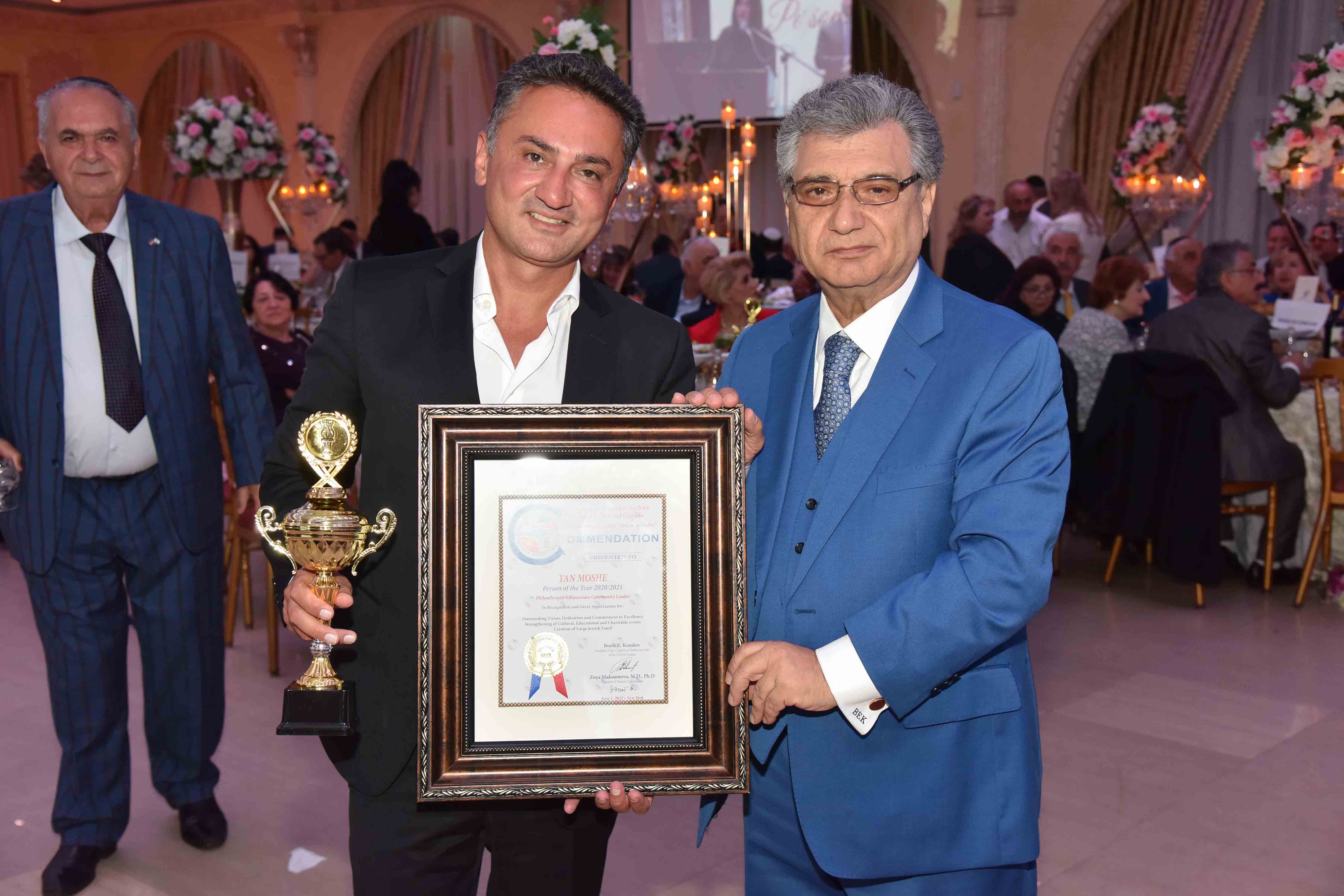
– Yan, I know that you
were born in my hometown of Samarkand to the very famous and noble family of
Yosef and Bruho Mosheyev, whose names are named after your synagogue, which has
become the home of many Bukhara Jews.
– Yes, our glorious Toxsur family originated from
Iran and Afghanistan. It is known for their brilliant personalities not only in
Central Asia, but also beyond. Our ancestor Simontov Melamed was a famous
Talmudist and lived in Iran. His book, Hayeti Rukh, which is in the Jerusalem
Museum, contains many secret codes, unsolved even thus far. He was very
authoritative, and there was no anti-Semitism in Iran while he was alive. He
was a great religious man and he knew there would be a coup in the government where
all the Jews would be killed. He managed to warn the people: “As soon as you
bury me, do not even sit shiva, immediately leave Iran.” After listening to
him, all Jews, including his children, left Iran and saved their lives. His son
Ruben went to Central Asia to the city of Samarkand, where he later became a
famous rabbi. His grandson Moshehaim Tohsur, uncle of my grandfather Yosef,
became Gabai of the Humbaz synagogue. Unfortunately, he was denounced for
religious reasons as an enemy of the people. He died in prison on 14 days,
refusing food because it was not kosher and he did not even drink water. This
sad event was the tragedy in the history of our entire family!
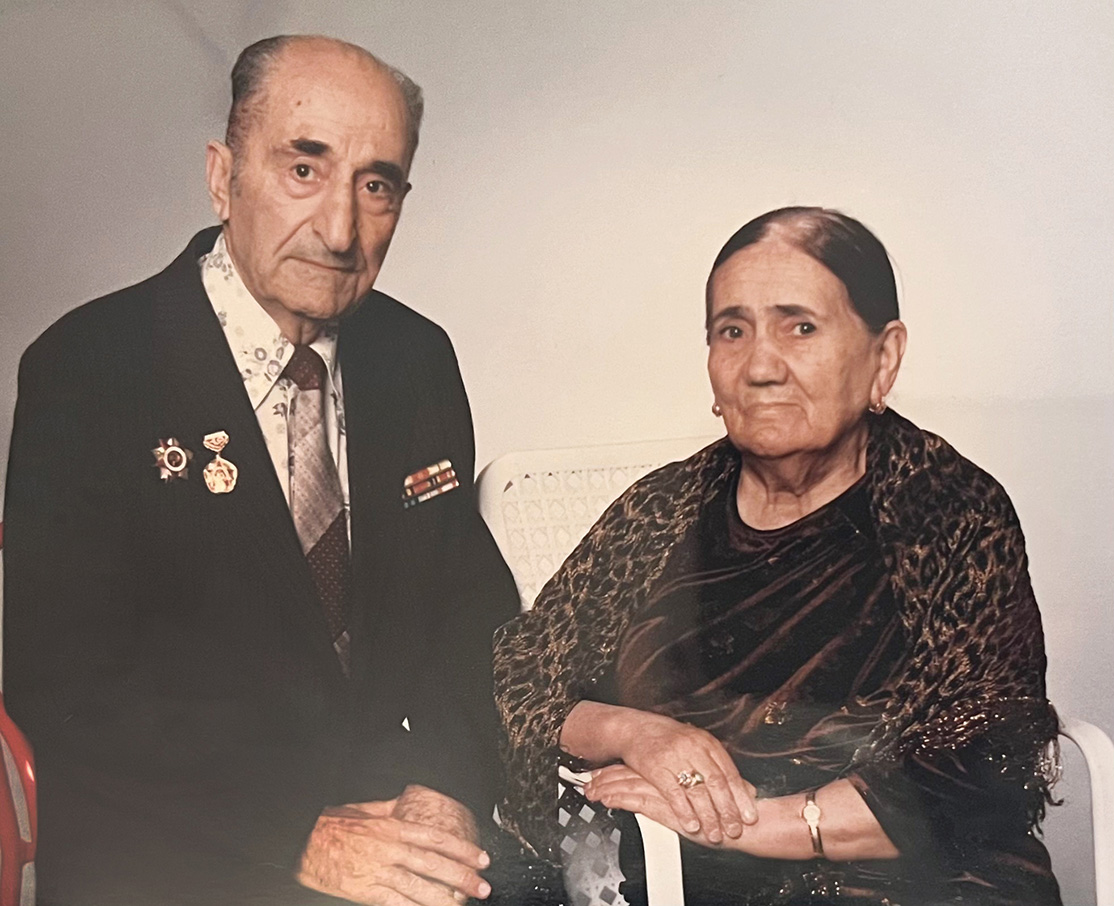 – Who in the family has
the most influence on your personality?
– Who in the family has
the most influence on your personality?
– The main people in my life, of course, were my
mother Maria, grandfather Yosef, grandmother Brukho and my mother’s brother - Uncle
Misha, who almost replaced my father. I am also grateful to my aunts: Mama
Sveta, Nela, Frida, and Raya, who in every way cared and spoiled me. Actually,
we had a very friendly house, where the foundation and the cement were my
grandparents. I remember my grandmother very smart and kind. She was also very
beautiful and accessible to all. She was a merchant, or as they say now a “business
woman”. It was my visionary grandmother Brukho who first saw in me all the
makings of an enterprising person and said: “You will be a good businessman!” And
so it came to be. I inherited this quality from her. My exceptional
mathematical abilities and quickly computing everything in my head – that came from
my grandfather Yosef. I grew up in their house and I loved them very much. They
were unique people who survived the hunger, the Basmachi, and the hard wartime
with cards and coupons. At the same time, they managed to keep a sense of
nobility, intelligence, positive character and gratitude for each day lived.
Very kind and humble, they always extended a helping hand to those in need. Their
door was always open! Much later here in America, we learned from other people
that Grandpa Yosef and Grandma Brukho helped many poor, and the children of, Ilya
Akilov recall that they were sponsors of the Jewish cemetery and never
advertised it. Perhaps it is this character of Patrons that I have inherited
from them. I remember well their words: “It is your obligation to help those
who need your help!” In their family, all children received not only a good
upbringing, but also a higher education. Of the six children they had, four
became doctors, including my mother, who worked as a head of the medical school
and as an endocrinologist at the regional hospital.
Misha, their only son is a pediatric doctor, and in
1990 he defended his thesis in pediatrics. Brukho and Yosef Mosheyev lived 63
years of honest and decent family life in love and harmony, keeping a good
reputation and good memory. They left this world as saints, torturing no one
with a sense of duty: Grandma Brukho in 1995, and Grandpa Yosef in 2000. He
himself marked his date when he told his children: “I will go to your mother in
5 years!”.
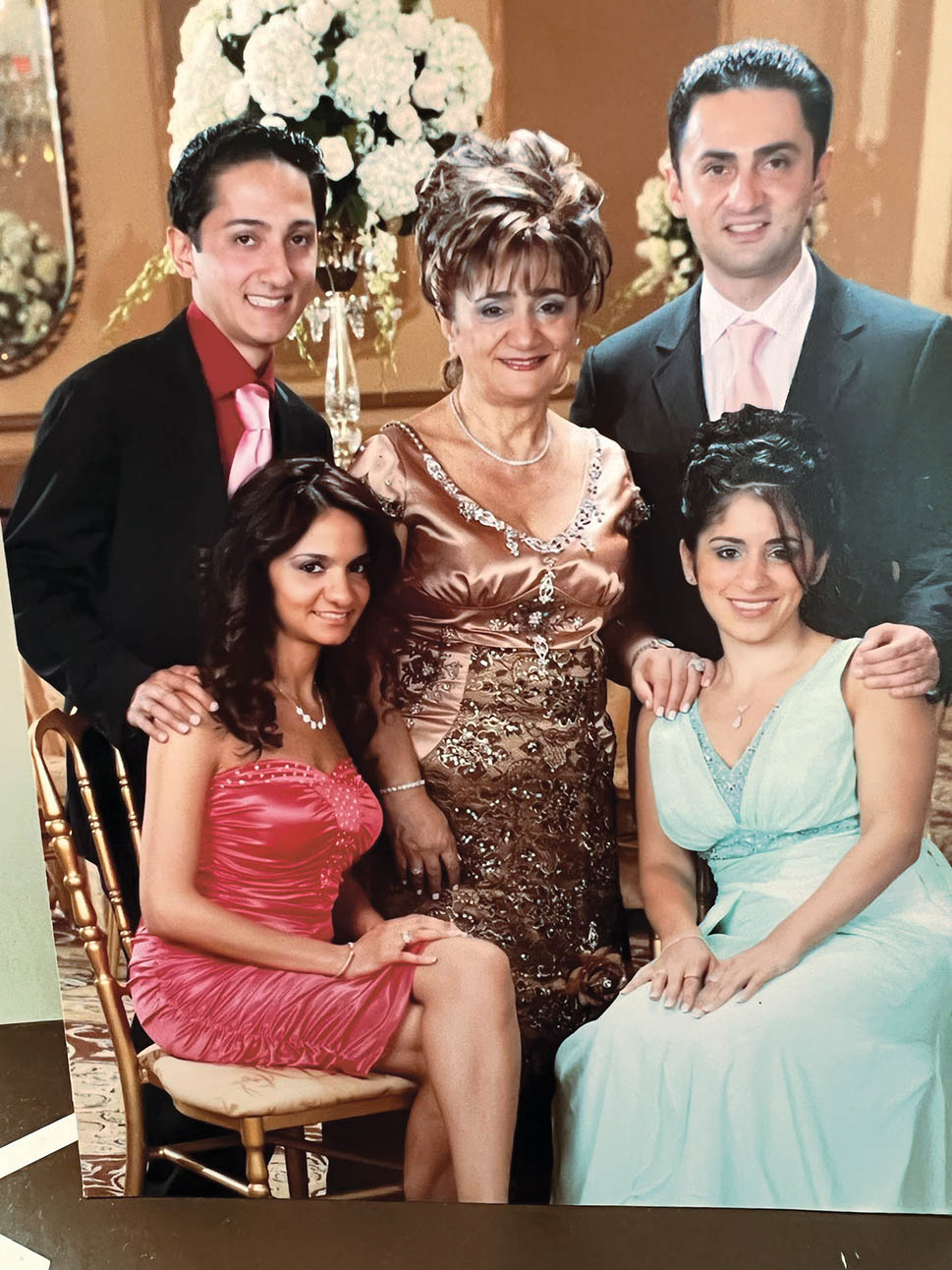 From memories of Yan’s mother: Yan
grew up always surrounded by our large family, was a very fast boy - his energy
was without limits. Every minute of his free time was painted, otherwise he
would have been a street master and a hero to his friends. I enrolled him in
all sorts of clubs: aeromodel, basketball, chess and music, and he studied
everywhere with excitement and interest. Yan later admitted that all those
clubs helped him in life, especially chess, which taught him to calculate steps
ahead and make important moves in both business and everyday life.
From memories of Yan’s mother: Yan
grew up always surrounded by our large family, was a very fast boy - his energy
was without limits. Every minute of his free time was painted, otherwise he
would have been a street master and a hero to his friends. I enrolled him in
all sorts of clubs: aeromodel, basketball, chess and music, and he studied
everywhere with excitement and interest. Yan later admitted that all those
clubs helped him in life, especially chess, which taught him to calculate steps
ahead and make important moves in both business and everyday life.
- Yan, when and how did
you end up in America?
– In 1991, 54 years later, the good name of our
great-grandfather Moshehaim was rehabilitated, which enabled our big family to
emigrate abroad in 1993. Part of our family moved to Israel, and part to
America. I was 15 years old and I was the oldest in my mother’s family. Behind
me was sister Regina and twins: brother Vlad and sister Violet. I remember that
we lived 8 people in the same apartment. The only thing I could to do then was
handing out flyers in apartment buildings, collecting recyclable bottles, and
cleaning snow. I also delivered pizzas and even drove a yellow cab. At the same
time, I studied at Queens and Baruch colleges. As far as I can remember, I was
always a conscientious and serious boy who grew up instantaneously. I started
to realize I had to help my family. My father I do not remember, he left our
family when I was barely 6 years old, and my mother almost always worked alone
in several places, devoting her life to us - to her children. She made sure
that we became worthy people and that we received a good education. My sister
Regina became a successful doctor, Sister Violet became a pharmacist, Brother
Vlad is a good Businessman.
– I know you started a
family early and went to school and work at the same time...
– Yes, back in high school, when I was 16 and my
future wife was 15, we met and connected. Everyone thought it was a boyish
friendship and it would go away quickly. But our love grew stronger, and we got
married when I was 21 and my fiancée Margarita was 20. Everyone was worried
that we would not be able to finish our education: Margarita studied pharmacy
and I studied at Baruch College. My strict mom, like many moms today, always
wanted to see me as a doctor. At that time, it seemed to her that this
specialty is more suitable for her eldest son, who is “obligated” to continue
the family tradition. But the opposite happened: I became a businessman, and my
wife a pharmacist whom later continued her education and became lawyer. With
the first earnings I received, I began to invest in the medical offices. I began
to arrange them, carefully studying the rules of American business and
management. I grew up constantly investing in new projects and ideas. We
created more than 34 medical offices and a private hospital in New Jersey. Now
I have hundreds of doctors working under my supervision. In total, I was able
to create more than 4 thousand jobs, that I am very proud of. And to the
comfort of my mother (Yan smiles) my sister Regina became a doctor and is CEO
& Medical Director of Citimed Medical Care PC., and my children will soon
become doctors. My eldest daughters, Bracha and Esther, attend medical school
almost free of charge, and receive almost a full scholarship for excellence. So,
after all, Mom’s dream came true and the legacy continues!
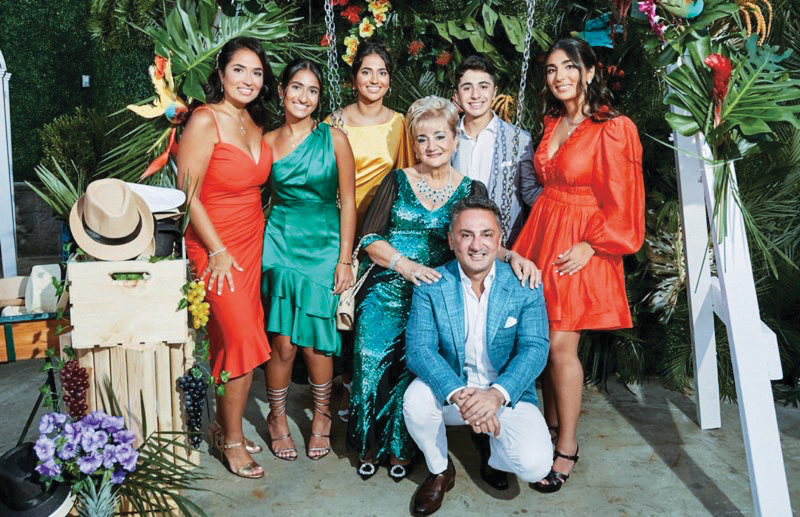
– How did you come to
religion?
– This is probably going on a genetic level. All
members of the Toxsur family, as you know, were deeply religious people. When I
first moved to Long Island in 2005, I became friendly with the Rabbi at the
Chabad near me. At that time, I had 3 girls and my wife and I really wanted to
have a son. The Rabbi at Chabad prayed a lot for us and invited my wife to
visit the mikvah and Burial Ground of the Lubavitcher Rebbe to pray. After a
short time thereafter, the miracle we waited for happened and we had our long-awaited
son Joseph, named after my grandfather. This fact once again confirmed my deep
faith in God!
– You have four
children, what is the main rule for you in their upbringing?
– I am very strict but at the same time a good
father, I do not spoil the children, but teach them to work hard and study. To
learn more about the medical profession, my 15-year-old son, Joseph, volunteers
at a Long Island hospital during the summer holidays, and my 16 year old
daughter, Emma, at a New Jersey hospital.
Children must understand the reality of life and be
held accountable for their actions. I could easily pay for my girls to go to
college, but I don’t do that to make them aware of the responsibility for their
studies and student loans.
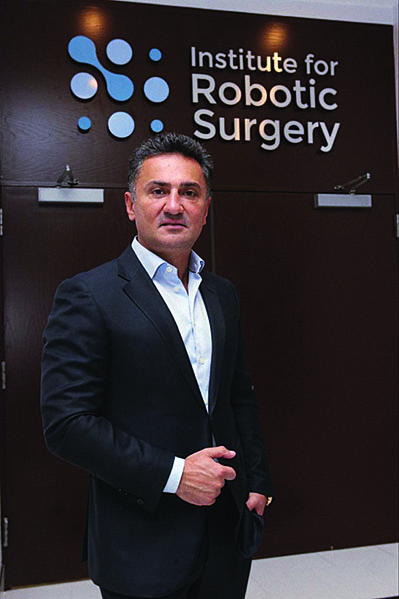
– Yan, you have already
achieved much in your profession. Has your popularity changed? Your personality
arouses the interest of many. Who are you: businessman, investor, talented
leader, just a handsome man?
– I would say that first of all I am a man who considers
himself to be a good father, a son, a husband and a brother. Then I am a
businessman and everything else... Popularity has not changed me, but on the
contrary, I am stricter with myself and others. I have my own unmistakable
instincts about people and business partners. I always respect the boundaries
of relationships with each other and appreciate loyal and true friends. And, of
course, in all this I am helped by my family, led by my mother Maria and my
wife Margarita, who for me are my reliable back.
– What do you miss
about your life?
– I’m terribly short of time, I don’t need a job. It
is my passion that takes up most of my time. I also do sports, read a lot, and
always try to spend my weekends with my family.
– The complex
Millennium, the synagogue Ohel Joseph and Brukho Toxsur, Mikva Menashe and
Mazal, the restaurant Millenium, the Longevity Center, the Center for Combating
Depression, Loneliness and Alcoholism - all this is only a small part of what
we know. Tell us more about your projects.
– The history of construction Millennium is not
easy. The building was built on the site of residential buildings. At the heart
of my 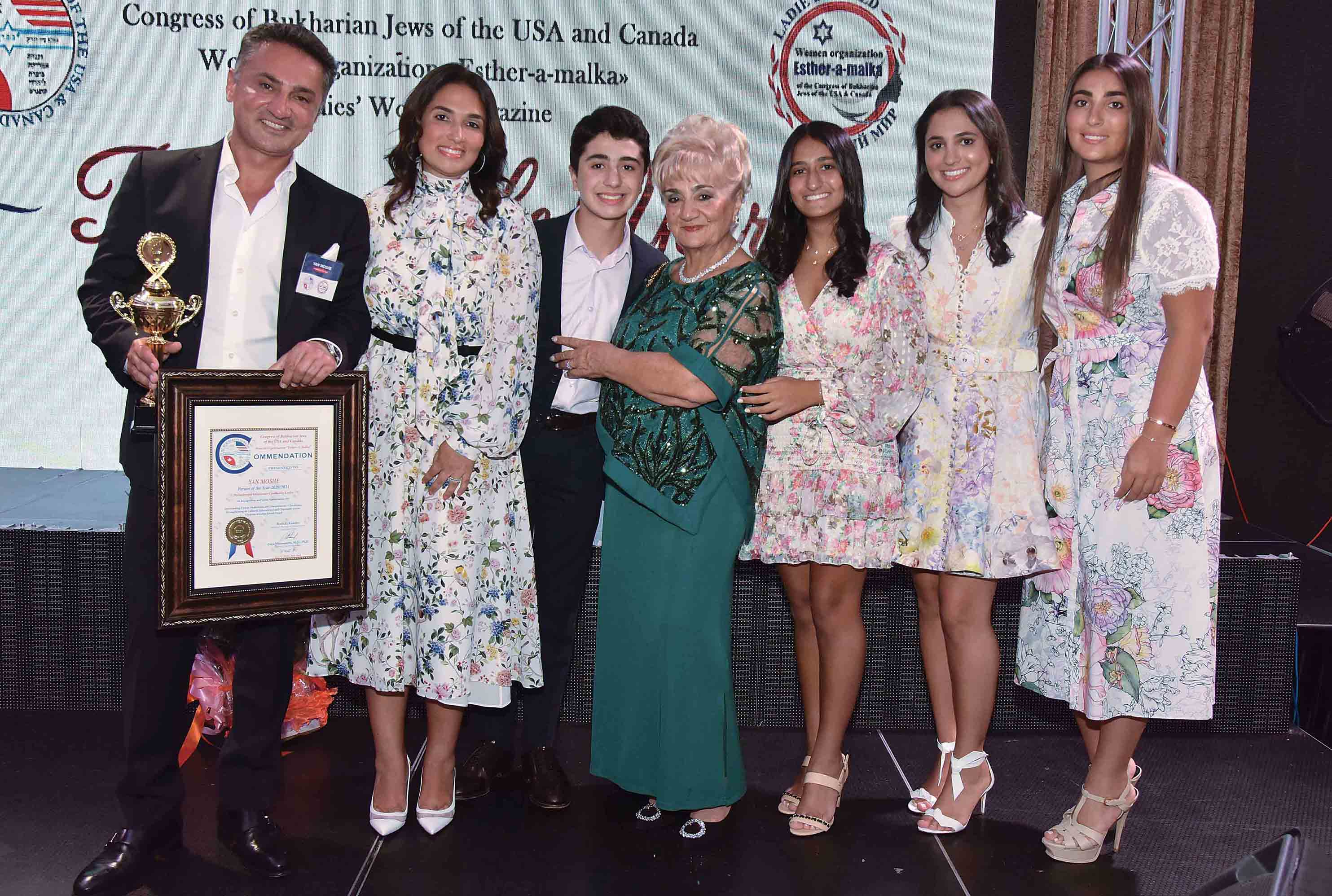 new luxury condo project was a huge synagogue in honor of my grandparents
Yosef and Grandma Brukho. The first Rabbi - Mordechai Rakhminov - was very
loved and popular in our community. He made sure that people came to the
synagogue with joy and love. My main condition was that everything should be
free: funeral, bar/bat Mitzvah, Shabbat Hatanah, and childbirth celebrations!
There are two mikvahs (for a nominal fee): The men’s section, named after my
untimely beloved uncle - Michael, and a woman’s section - Mazal, in honor of my
mother Maria. I know there are a lot of poor people around us who don’t have
the money to give their families a proper burial or wake, spend Passover Seder
or celebrate the New Jewish Year. All the money received from the work of the
synagogue goes to the synagogue itself. I pay the missing difference.
new luxury condo project was a huge synagogue in honor of my grandparents
Yosef and Grandma Brukho. The first Rabbi - Mordechai Rakhminov - was very
loved and popular in our community. He made sure that people came to the
synagogue with joy and love. My main condition was that everything should be
free: funeral, bar/bat Mitzvah, Shabbat Hatanah, and childbirth celebrations!
There are two mikvahs (for a nominal fee): The men’s section, named after my
untimely beloved uncle - Michael, and a woman’s section - Mazal, in honor of my
mother Maria. I know there are a lot of poor people around us who don’t have
the money to give their families a proper burial or wake, spend Passover Seder
or celebrate the New Jewish Year. All the money received from the work of the
synagogue goes to the synagogue itself. I pay the missing difference.
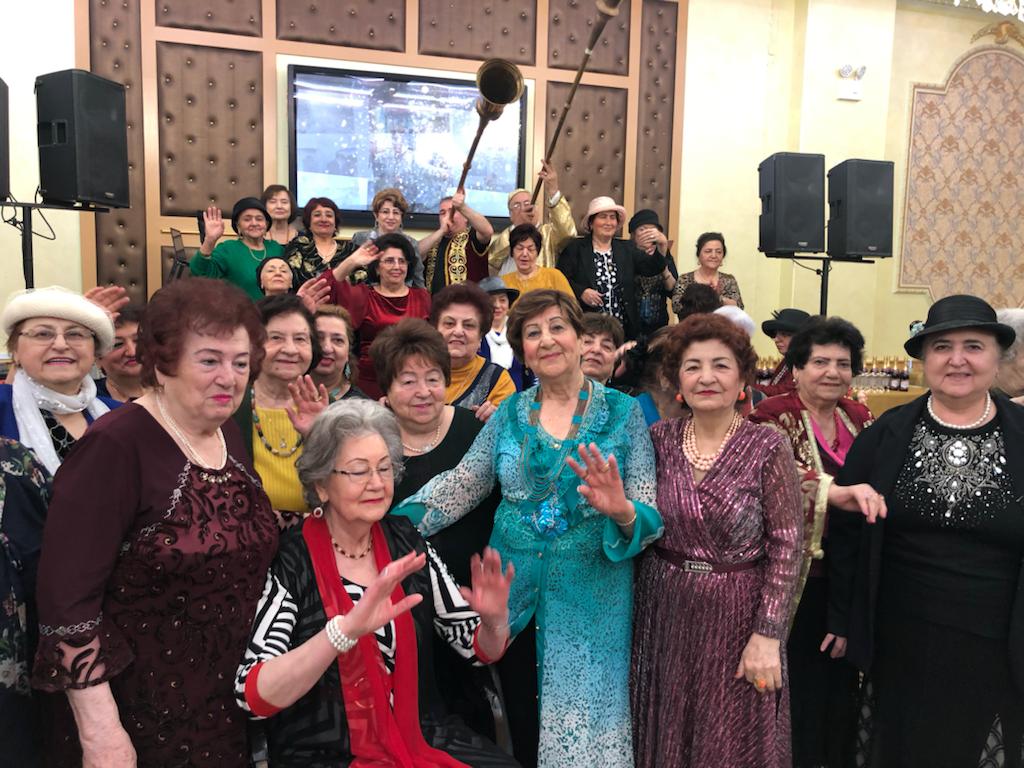 And the idea of opening the Longevity Center was
also not accidental. I saw older people over 60 years old being depressed
because they are often alone. Children, if they have them, they work, and they
don’t have much time to sit and look after their parents. Now with this
luxurious Center under the guidance of Emmanuel Kalendarev, it is a favorite
place of leisure for the elderly. There they enjoy delicious lunches,
entertainment, excursions and meetings with interesting people. I even
purchased a transportation Van to bring people to the center because insurance
doesn’t pay for them to attend. And I am happy when I see the grateful eyes of
our visitors. It makes life worth living! My project was successful!
And the idea of opening the Longevity Center was
also not accidental. I saw older people over 60 years old being depressed
because they are often alone. Children, if they have them, they work, and they
don’t have much time to sit and look after their parents. Now with this
luxurious Center under the guidance of Emmanuel Kalendarev, it is a favorite
place of leisure for the elderly. There they enjoy delicious lunches,
entertainment, excursions and meetings with interesting people. I even
purchased a transportation Van to bring people to the center because insurance
doesn’t pay for them to attend. And I am happy when I see the grateful eyes of
our visitors. It makes life worth living! My project was successful!
– The Museum
of Bukhara-Jewish Heritage and Culture has recently appeared in your building.
– I’ve always cared about the history of my people. Everything in this museum is familiar to me firsthand. I have seen all this in our neighboring houses and in the yards and streets of my native Samarkand. I love my people very much and am proud to be a Bukharan Jew!
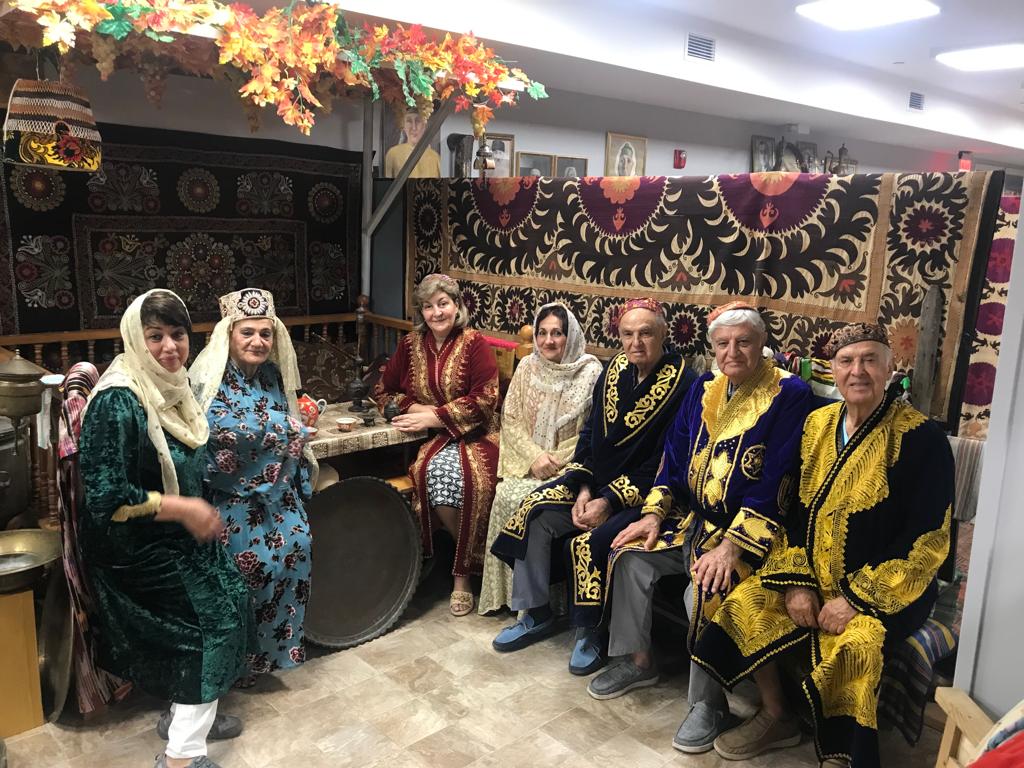
Initially, the museum was in a Queens High School. The
head of the Museum, Aron Aronov collected all the exhibits such as carpets,
dishes, clothing, portraits, Tandor, religious artifacts, carts, old vats, and
so much more. All this was a part of the ordinary daily life of our ancestors for
many centuries. As the collection continued to grow, the space became even
smaller than it already was. Mr. Aronov 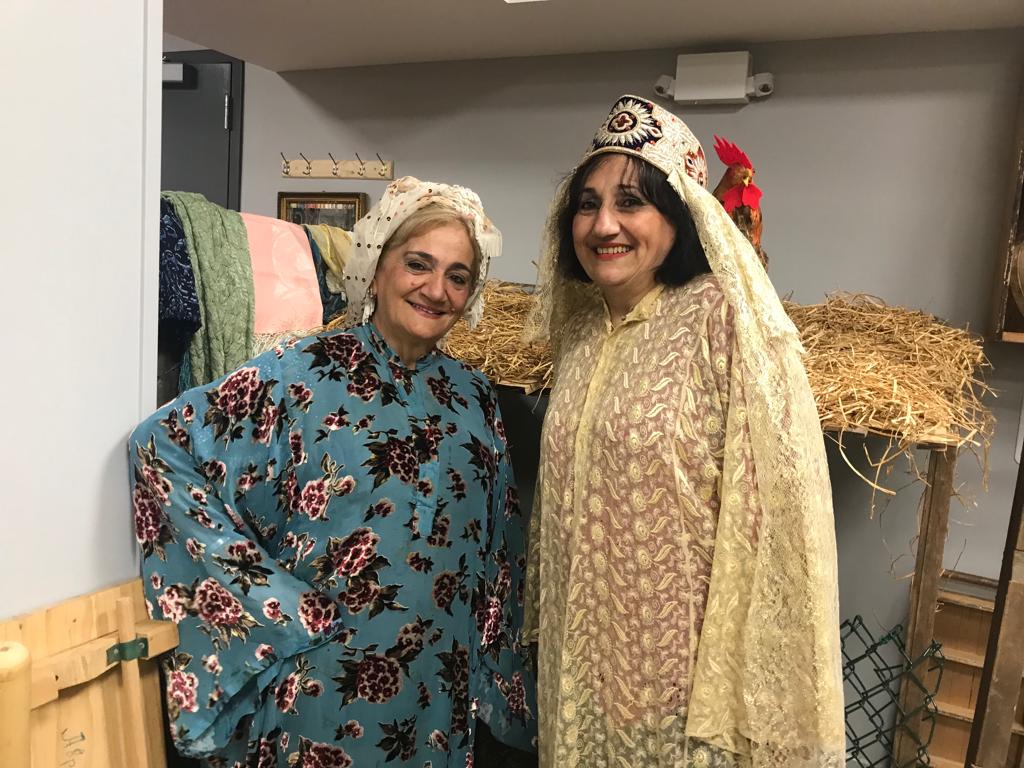
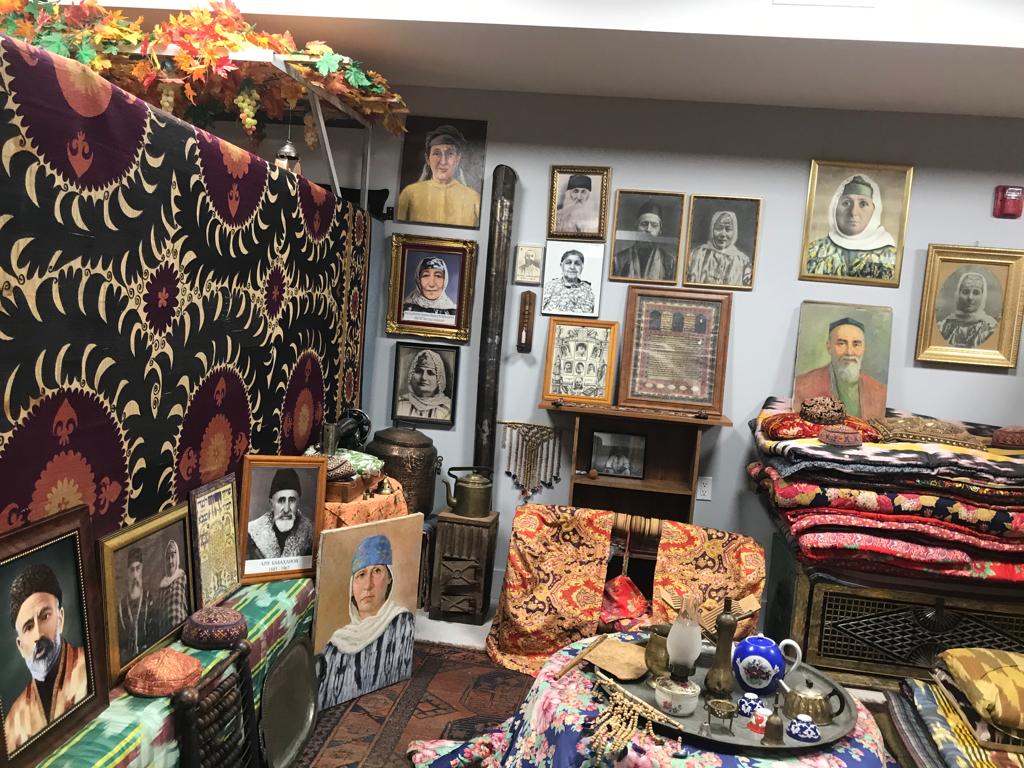 then came and asked me to move the Museum
to the residential center of the Bukharian Jews. I will not tell how much
effort I have made to ensure that the building which formerly housed Pioneer
Supermarket does not fall into the wrong hands. The main thing is that the new
building houses this unique heritage museum! Now I know for sure that everyone
can visit it, touch, and experience the history of their past!
then came and asked me to move the Museum
to the residential center of the Bukharian Jews. I will not tell how much
effort I have made to ensure that the building which formerly housed Pioneer
Supermarket does not fall into the wrong hands. The main thing is that the new
building houses this unique heritage museum! Now I know for sure that everyone
can visit it, touch, and experience the history of their past!
I am now more excited and inspired by new charitable projects for our people. My strength is that everything I do in life I do with love and positivity! The motto of my life is to be a helpful member of the community!
